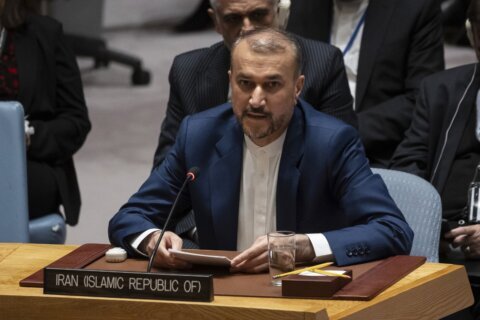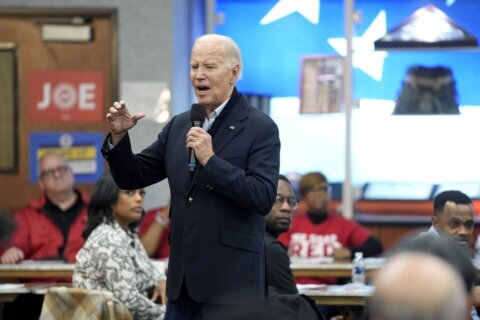JERUSALEM (AP) — Presidents of Israeli universities released a joint letter Friday criticizing the government’s decision to withhold the country’s most prestigious prize from a scholar over his political views, saying it “severely harms free speech and free thought.”
Israel’s top court on Thursday upheld the education minister’s move to temporarily block Oded Goldreich from receiving this year’s Israel Prize in mathematics and computer science over claims he supports the Palestinian-led international boycott movement, allegations he denies.
“Denying a person a prize due to their political beliefs contradicts the basic principle of the Israel Prize and severely harms free speech and free thought,” the letter said. “Your decision creates the difficult impression that only those who ‘toe the line’ will be rewarded, and anyone who dares express a political opinion outside of the consensus will be punished.”
The letter said the presidents do not endorse Goldreich’s political views but that he should be able to express them “without fear.”
The letter was addressed to Education Minister Yoav Gallant, a member of Prime Minister Benjamin Netanyahu’s hawkish Likud party, who defended his decision to refuse to sign off on the prize — something that is usually a formality.
Gallant tweeted Friday that Goldreich’s alleged support for the boycott movement “spits in the face of the state of Israel” and may violate laws against such activity. He said authorities needed time to determine whether Goldreich’s rejection of the boycott movement is “sincere.”
Last month, Goldreich and hundreds of other academics signed a petition calling on the European Union to halt funding for Ariel University, which was established inside a settlement of the same name in the occupied West Bank. The scholars said it legitimized settlement activity, which is seen by the Palestinians and much of the international community as an obstacle to peace.
Goldreich, a professor of computer science at Israel’s Weizmann Institute, has said he does not support the boycott movement against Israel but objects to its policy of building settlements on occupied lands.
In Thursday’s ruling, the court gave Gallant 30 days to reach a decision about awarding the prize to Goldreich, in effect blocking him from receiving the recognition at next week’s ceremony. The court said he could be awarded the prize at a later date.
Israel captured the West Bank in the 1967 Mideast war and has built scores of settlements there in the decades since. Most of the international community considers them to be a violation of international law and an impediment to a two-state solution with the Palestinians.
The international movement for boycotts, divestment and sanctions against Israel, known as BDS, models itself on the campaign against apartheid South Africa. Israel views BDS as an assault on its very existence, pointing to the extreme views of some supporters and the movement’s refusal to endorse a two-state solution.
BDS organizers adamantly deny charges of anti-Semitism and do not endorse any specific solution to the conflict, instead focusing on what they view as a struggle for Palestinian rights.
Copyright © 2024 The Associated Press. All rights reserved. This material may not be published, broadcast, written or redistributed.







